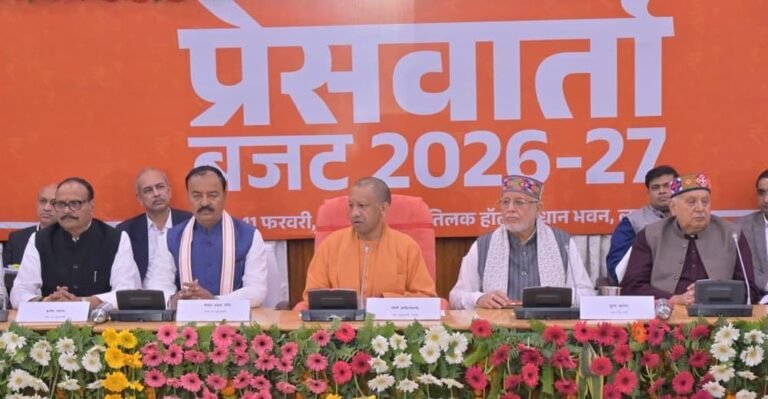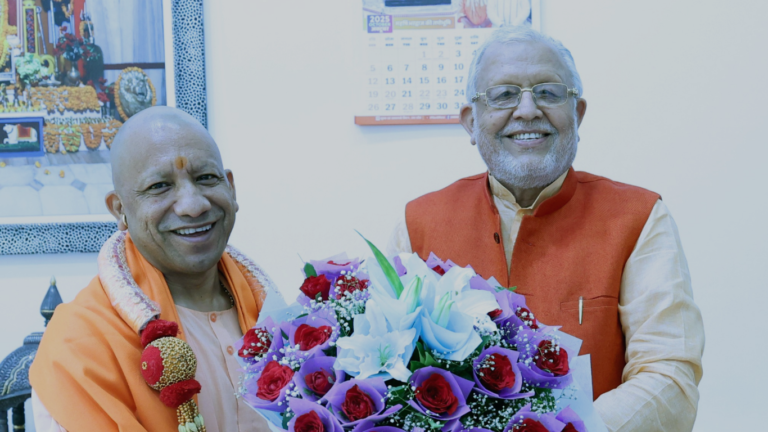
Lucknow, August 22, 2025 – In a major breakthrough, the Uttar Pradesh Anti-Terrorism Squad (ATS) has exposed a widespread network forging Aadhaar cards and other key documents for illegal immigrants. The operation, which spanned multiple states, led to the arrest of eight suspects just a day ago, highlighting growing concerns over identity fraud that could threaten national security.
The racket came to light after months of careful surveillance by the ATS. On August 20, they filed a case and launched raids across Uttar Pradesh, Bihar, West Bengal, and Delhi-NCR. The arrested men include Mohammad Naseem, believed to be the main operator from Azamgarh, along with Mohammad Shakib and Vishal Kumar from the same district. Others nabbed were Himanshu Rai and Mrityunjay Gupta from Mau, Salman Ansari from Ghaziabad, Gaurav Kumar Gautam from Auraiya, and Rajeev Tiwari from Gorakhpur. These individuals ran common service centers, known as Jan Seva Kendras, which are meant to help people with official paperwork but were twisted for illegal use.
Here’s how the scheme worked – The group misused these centers to create or alter Aadhaar details. They relied on high-tech tricks like VPNs to hide their tracks and remote software to dodge security checks. Tools such as fingerprint scanners, laptops, and phones helped them fake biometric data, the fingerprints and eye scans that make Aadhaar unique. For each fake card, they charged between 3,000 to 10,000 rupees, depending on the client’s needs. Along with Aadhaar, they forged birth certificates, address proofs, and sworn statements, which later helped get passports or tap into government benefits.
The main targets? Illegal entrants from neighboring countries. Rohingya refugees, Bangladeshis, Nepalis, and others paid up to blend in as Indian citizens. “These fake IDs let them live here quietly, get jobs, or even vote,” said a senior ATS officer who spoke on condition of anonymity. During the raids, police seized piles of forged documents, gadgets, and mobile devices loaded with incriminating data. The network stretched from UP’s Azamgarh and Gorakhpur to Kolkata in West Bengal and Katihar in Bihar, showing how organized it was.
This isn’t the first time such scams have surfaced in UP. Back in July 2024, police found thousands of fake birth records in Rae Bareli, mostly for Bangladeshis and Rohingya. Earlier this year, in March, a Samajwadi Party worker in Moradabad was caught with stacks of altered Aadhaar cards. And in April, Sambhal cops busted a gang using fake websites and iris scans to forge IDs. Experts say these rackets thrive because borders are porous and demand for cheap labor is high, but they pose real risks, from welfare fraud to potential terror links.
As of today, the ATS is pushing for custody of the accused to dig deeper. “We’re hunting for more middlemen and operators,” the officer added. Interrogations are underway, and teams are still raiding spots in multiple states. Sources hint at ties to bigger smuggling rings that sneak people across borders, but nothing’s confirmed yet.
This bust underscores a bigger problem, India’s Aadhaar system, meant to streamline services, is vulnerable to hacks. With over a billion cards issued, even small leaks can cause chaos. The government has tightened rules, like linking biometrics stricter, but crooks keep finding loopholes.
For now, the ATS vows to dismantle the entire web. As rains lash UP and borders stay tense with Bangladesh unrest, this case reminds us how fragile security can be. Residents hope swift justice will deter future frauds and keep identities safe.



